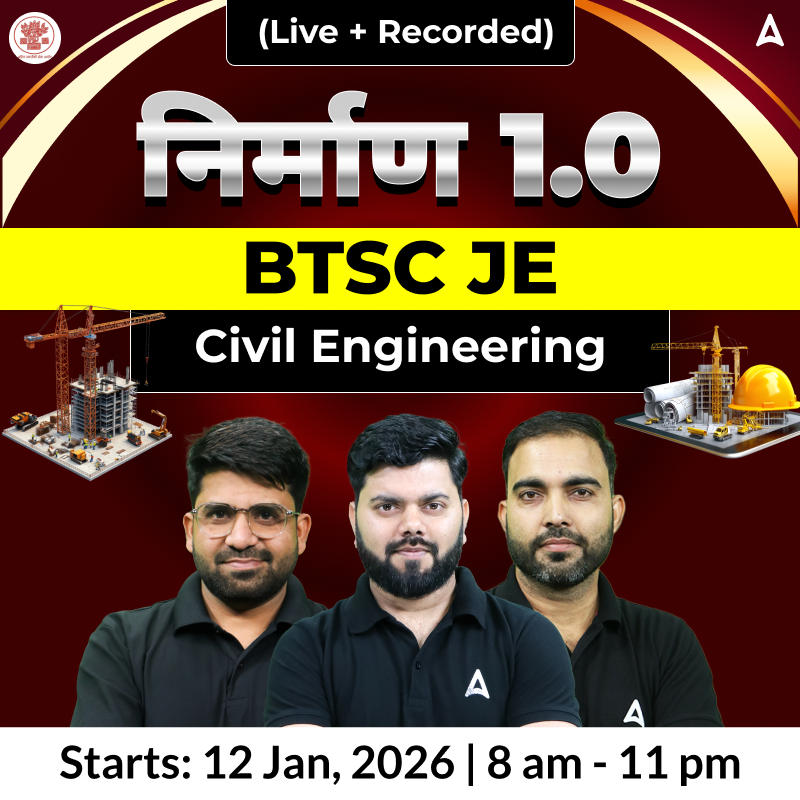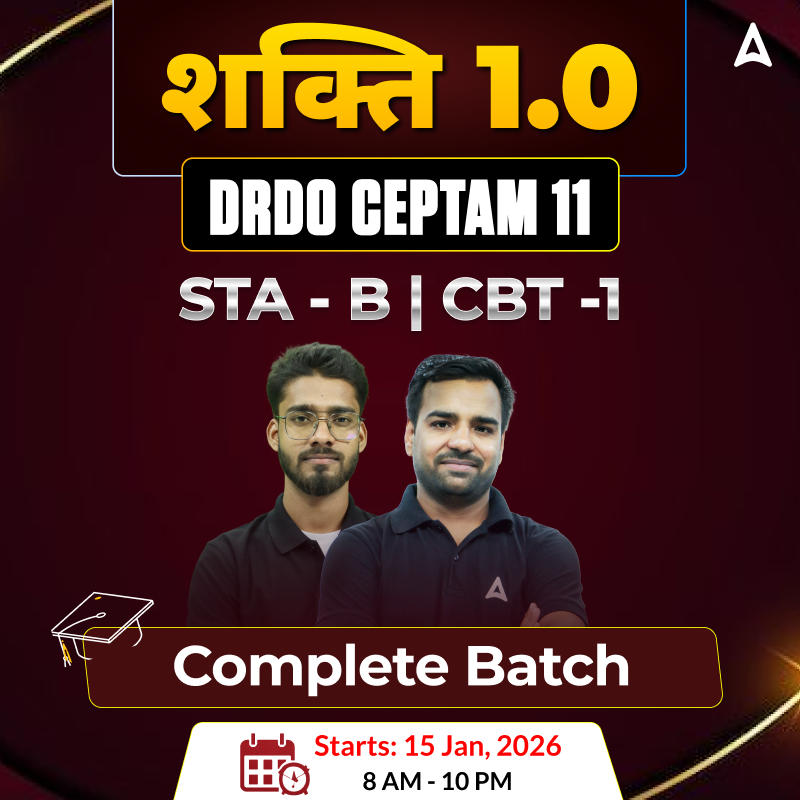Table of Contents
The IIT Guwahati has the announced the exam date for the GATE Exam 2026. The exam is conducted every year by seven IITs and IISc Bangalore, under the guidance of the National Coordination Board (GATE) of the Ministry of Education, Government of India. The GATE Exam 2026 is ongoing, which is organized by IIT Guwahati and it has declared the GATE Exam Date 2026 on its official website. The GATE 2026 examination is scheduled for 7, 8, 14 and 15 February 2026.
GATE Exam Date 2026 Out
The IIT Guwahati has released the GATE Exam Date 2026 on the official website https://gate2026.iitg.ac.in/. The GATE 2026 Exam is scheduled for 07 February, 08 February, 14 February and 15 February 2026 in various exam centres. The GATE admit card has also been released on its official website at gate2026.iitg.ac.in. The candidate can check all the important information regarding the GATE Exam Date 2026 in this article.
GATE Exam Date 2026: Key Details
The Graduate Aptitude Test in Engineering has announced the GATE Exam Date 2026 on the IIT Guwahati official website. The key details regarding exam dates are given the table below:
| GATE 2026 Exam Date: Highlights |
Key Information
|
Important Date
|
Eligibility
|
Exam Information
|
|
GATE 2026 Exam Important Dates
The GATE Exam Date 2026 has been released by IIT Guwahati. Below is a list of all important dates related to the GATE Exam 2026:
| GATE Exam 2026 Important Dates | |
| Notification Released | 21 August 2025 |
| Application Starts | 28 August 2025 |
| Last Date to Apply (without late fee) | 07 October 2025 (Extended) |
| Last Date to Apply (with late fee) | 13 October 2025 |
| Last date for change of Category, Paper, and Examination City. | November 06, 2025 |
| GATE 2026 Admit Card Release Date | 13th January 2026 |
| GATE 2026 Exam Dates | 07 February, 08 February, 14 February, 15 February 2026 |
| Response Sheet Availability | 2nd Week of February 2026 |
| Answer Key Release | 4th Week of February 2026 |
| Result Declaration | 19 March 2026 |
| Scorecard Availability | 27 March to 31 May 2026 |
| Scorecard Availability with fees | 01 June to 31 December 2025 |
| COAP Counselling Portal Opens | 3rd Week of March 2026 |
GATE 2026 Exam Dates and Schedule
The Indian Institute of Technology, Guwahati, which is responsible for conducting the GATE 2026 Exam has released the exam schedule for GATE Exam 2026. The exam will be held on 07, 08, 14, and 15 February, 2026 at 235 exam centres across eight IIT zones in India. The exam will be held in two shifts: the Forenoon Shift from 9:30 AM to 12:30 PM and the Afternoon Shift from 2:30 PM to 5:30 PM.
| GATE 2026 Exam Date & Schedule | ||
| Exam Date | Paper Code | Exam Timing |
| 07 February 2025 | AG, ES, GG, IN, MA, MN, TF, XE, XL | 09:30 AM to 12:30 PM |
| AE, BT, CH, CY, GE, PH, XH | 02:30 PM to 05:30 PM | |
| 08 February 2025 | CS-1, ST | 9:30 AM to 12:30 PM |
| CS-2, EY, NM, PE | 02:30 PM to 05:30 PM | |
| 14 February 2025 | CE-1, EE, PI | 9:30 AM to 12:30 PM |
| BM, CE-2, ME, MT | 02:30 PM to 05:30 PM | |
| 15 February 2025 | EC | 9:30 AM to 12:30 PM |
| AR, DA | 02:30 PM to 05:30 PM | |
GATE 2026 Exam Pattern and Marking System
The GATE 2026 exam will be conducted in a Computer-Based Test (CBT) format and understanding the exam pattern is very important for candidates, which is described in the table below:
| GATE 2026 Exam Pattern | |
| Mode of Exam | Computer-Based Test (Online) |
| Language of examination | English |
| Duration | 3 Hours (180 Minutes) |
| Total Questions | 65 (10 for General Aptitude + 55 for Subject) |
| Total Papers | 30 subjects (candidates can choose one or two papers) |
| Total Marks | 100 |
| GATE 2026 Marking System | |
| Sections |
|
| Types of Questions | MCQ (1 or 2 marks), MSQ (Multiple correct), NAT (Numerical Answer Type) |
| Negative Marking |
|
| Partial Marking | Not allowed in any question type |
GATE 2026 Syllabus
The GATE 2026 Syllabus is designed to test candidates’ understanding of undergraduate-level subjects across engineering, science, architecture, and humanities streams. It consists of two main components in each paper:
- General Aptitude (GA): Common to all papers (15 Marks)
- Subject-Specific Syllabus: Varies based on the selected paper (85 Marks)
To check detailed subject-wise syllabus, click the link below:
Who Can Appear? Eligibility for GATE Exam 2026
To appear for GATE 2026, candidates must meet certain academic qualifications and other requirements, which we mentioned below.
- The exam is open to Indian citizens, and students from countries like Nepal, Bangladesh, Sri Lanka, Singapore, Ethiopia, and the UAE are also eligible.
- There is no upper age limit or the number of attempts to appear for the GATE exam.
- Candidates from Engineering, Technology, Architecture, Science, Commerce, Arts, and Humanities backgrounds can apply.
- The detailed qualification criteria are mentioned in the table below:
| Qualifying Degree | Eligibility |
| B.E./B.Tech./B.Pharm. | 3rd year or higher / Completed |
| B.Arch. / B.Planning | 3rd year or higher / Completed |
| B.Sc. (Research) / B.S. | 3rd year or higher / Completed |
| M.Sc. / M.A. / MCA or Equivalent | 1st year or higher / Completed |
| Int. M.E./M.Tech. (Post-B.Sc.) (4-year) | 1st year or higher / Completed |
| Int. M.E./M.Tech./M.Pharm. (5-year) | 3rd year or higher / Completed |
| Int. M.Sc. / Int. B.S.-M.S. | 3rd year or higher / Completed |
| B.Sc. / B.A. / B.Com. (3-year) | Final year or Completed |
| Pharm D. (6 years after 10+2) | 3rd year or higher / Completed |
| MBBS / BDS / BVSc | 5th/6th/7th semester or higher / Completed |
| Professional Society Exams (e.g., AMIE, AMICE) | Completed Section A or Equivalent |
| B.Sc. in Agriculture/Forestry/Horticulture | 3rd year or higher / Completed |
Who is Not Eligible for GATE 2026?
- Students in the 1st or 2nd year of a 4-year Bachelor’s degree (unless your degree is only 3 years).
- Students in the 1st year of a Master’s program in Science, Math, or Statistics.
- Candidates who have only a diploma (unless they also have a recognised Bachelor’s degree).
Why GATE 2026 Exam Date Is Important?
The announcement of the GATE Exam Date 2026 helps candidates in these ways:
- Plan revision properly
- Focus on mock tests
- Manage time efficiently
- Prepare for travel arrangements in advance
Knowing the exact GATE 2026 Exam Date reduces confusion and helps candidates stay confident.
What to Do After GATE Exam Date 2026 Out?
After the release of the exam date, candidates should:
- Make a final revision plan.
- Start Practicing previous year question papers
- Practice the full-length mock tests
- Revise all important formulas and concepts
- Keep checking the official website for further updates
GATE 2026 Exam Centres
The Indian Institute of Technology, Guwahati, has released the list of GATE 2026 exam centres on its official website. Gate 2026 Exam has a total of 8 IIT Zones, which provided below in the table.
IISc Bangalore
| State | Exam City |
|---|---|
| Andhra Pradesh | Ananthapuramu, Kurnool |
| Kerala | Angamaly, Kannur, Kasaragod, Kozhikode, Malappuram, Palakkad, Pathanamthitta, Payyanur, Thrissur, Vatakara, Wayanad |
| Karnataka | Bagalkot, Ballari, Belagavi, Bengaluru North, Bengaluru South, Bidar, Chikkballapur, Chikkamagaluru, Davanagere, Hassan, Hubballi/Dharwad, Kalaburagi, Kolar, Mandya, Mangaluru, Manipal-Udupi, Mysuru, Shivamogga, Tumakuru |
| Telangana | Hyderabad, Nalgonda, Narsapur/Medak |
| Andaman & Nicobar | Port Blair |
IIT Bombay
| State | Exam City |
|---|---|
| Gujarat | Ahmedabad, Anand, Bhavnagar, Bhuj, Gandhinagar, Jamnagar, Mehsana, Rajkot, Surat, Vadodara |
| Maharashtra | Ahmednagar, Akola, Amravati, Aurangabad, Baramati, Chandrapur, Dhule, Jalgaon, Kolhapur, Latur, Mumbai, Nagpur, Nanded, Nashik, Navi Mumbai, Panvel-Rasayani, Pune, Ratnagiri, Sangamner-Loni, Sangli, Satara, Solapur, Thane, Vasai-Palghar, Wardha |
| Goa | Madgaon, Mapusa, Panaji |
IIT Delhi
| Details | Information |
|---|---|
| Haryana | Faridabad, Gurugram, Hisar |
| Jammu & Kashmir | Jammu-Samba, Srinagar |
| Ladakh | Leh |
| Madhya Pradesh | Indore, Ujjain |
| New Delhi | New Delhi |
| Rajasthan | Ajmer, Alwar, Bhilwara, Bikaner, Dausa, Hanumangarh, Jaipur, Jodhpur, Kota, Sikar, Udaipur |
| Uttar Pradesh | Greater Noida, Mathura |
IIT Guwahati
| State | Exam City |
|---|---|
| Arunachal Pradesh | Naharlagun-Itanagar |
| Assam | Dibrugarh, Guwahati, Jorhat, Silchar, Tezpur |
| Bihar | Bhagalpur, Muzaffarpur, Patna, Purnea |
| Jharkhand | Bokaro Steel City, Dhanbad |
| Manipur | Imphal |
| Meghalaya | Shillong |
| Mizoram | Aizawl |
| Nagaland | Dimapur, Kohima |
| Sikkim | Gangtok |
| Tripura | Agartala |
| West Bengal | Asansol, Durgapur, Burdwan, Kalyani, Siliguri |
IIT Kanpur
| State | Exam City |
|---|---|
| Madhya Pradesh | Bhopal, Gwalior, Jabalpur, Sagar, Satna |
| Uttar Pradesh | Agra, Aligarh, Bareilly, Gorakhpur, Jhansi, Kanpur, Lucknow, Prayagraj, Varanasi |
IIT Kharagpur
| State | Exam City |
|---|---|
| Andhra Pradesh | Bhimavaram, Eluru, Kakinada-Surampalem, Rajamahendravaram, Srikakulam, Tadepalligudem, Vijayawada, Visakhapatnam, Vizianagaram |
| Chhattisgarh | Bhilai-Durg, Bilaspur, Raipur |
| Jharkhand | Hazaribagh, Jamshedpur, Ranchi |
| Odisha | Balasore-Bhadrak, Baripada, Bhubaneswar, Brahmapur, Cuttack, Dhenkanal, Rourkela, Sambalpur |
| West Bengal | Bankura, Berhampore, Hooghly, Howrah, Kharagpur-Midnapur, Kolaghat, Kolkata, Suri |
IIT Madras
| State | Exam City |
|---|---|
| Andhra Pradesh | Chirala-Bapatla, Chittoor, Guntur, Kadapa, Nandyala, Nellore, Ongole, Tirupati |
| Kerala | Alappuzha, Aluva-Ernakulam, Attingal, Chengannur, Kanjirapally, Kollam, Kothamangalam, Kottayam, Muvattupuzha, Thiruvananthapuram |
| Pondicherry | Puducherry |
| Tamil Nadu | Chennai, Coimbatore, Cuddalore, Dindigul, Erode, Kanyakumari-Nagercoil, Karaikudi, Krishnagiri, Madurai, Namakkal, Ooty, Pollachi, Ramanathapuram, Salem, Thanjavur, Theni, Thoothukudi, Tiruchirappalli, Tirunelveli, Vellore, Virudhunagar |
| Telangana | Adilabad, Karimnagar, Khammam, Kodad, Kothagudem, Nizamabad, Suryapet, Warangal |
IIT Roorkee
| State | Exam City |
|---|---|
| Haryana | Ambala, Kurukshetra |
| Himachal Pradesh | Baddi, Bilaspur, Hamirpur, Kangra-Dharamsala, Mandi, Palampur, Shimla-Solan, Una |
| Punjab | Amritsar, Bathinda, Jalandhar-Phagwara, Ludhiana, Mohali-Chandigarh, Patiala, Pathankot |
| Uttar Pradesh | Ghaziabad, Meerut, Moradabad, Muzaffarnagar, Noida, Saharanpur |
| Uttarakhand | Dehradun, Haldwani, Roorkee |
GATE 2026 Result Date (Expected)
The GATE has released the important date list on its official website, according to it the GATE result 2026 is expected to be declared in 19 March 2026. Candidates can download their scorecard from the official website.
The GATE score remains valid for three years from the date of result announcement.
GATE 2026 Score Validity and Benefits
The GATE 2026 score will be valid for 3 years from the date of result declaration. This means candidates can use their score until March 2029 for admissions and job applications. The score is valid only for the paper in which the candidate has appeared.
The Benefits of the GATE Score 2026 are as follows:
- 1. Postgraduate Admissions (M.Tech/M.E./M.S./Ph.D.)
- 2. Public Sector Undertakings (PSU) Recruitment
- 3. Research Fellowships
- 4. Higher Studies Abroad
- 5. Private Sector Advantage
- 6. Scholarships and Financial Aid

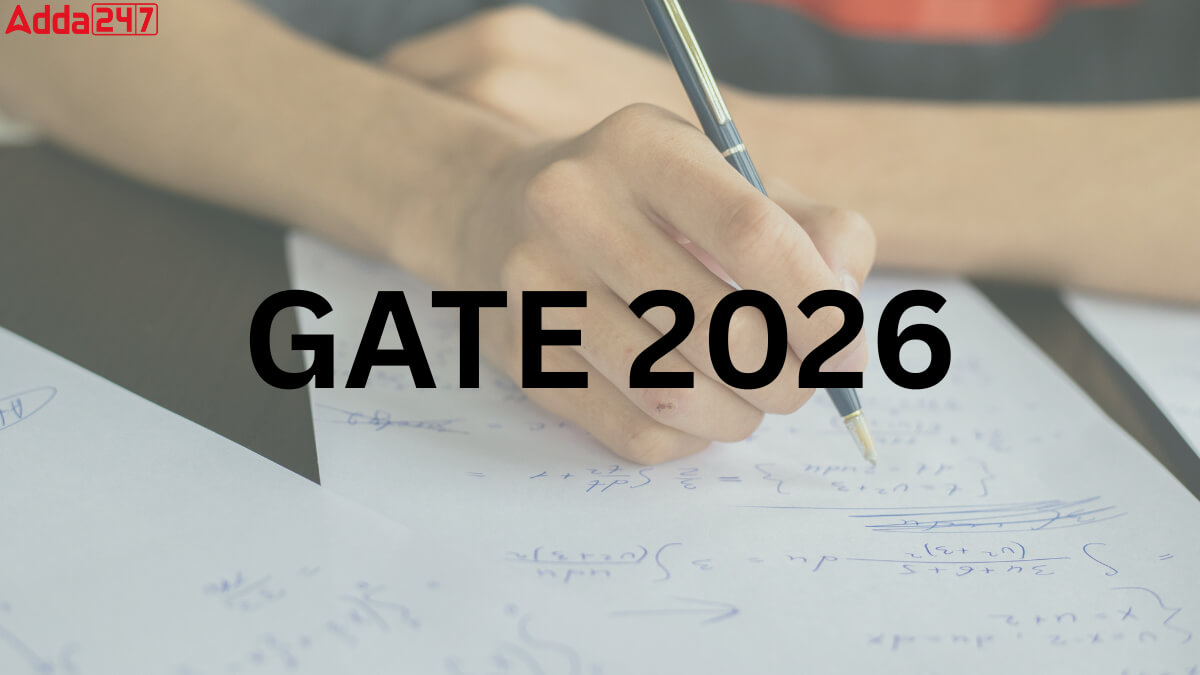
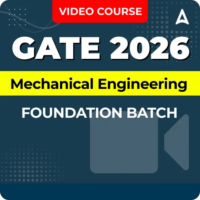
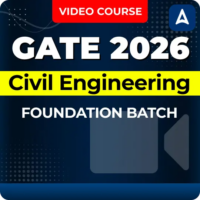
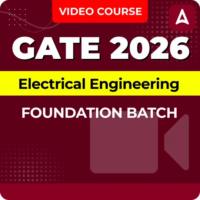

 MCL Recruitment 2026 Notification Out, C...
MCL Recruitment 2026 Notification Out, C...
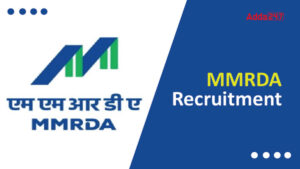 MMRDA AE JE Recruitment 2026 Out, Apply ...
MMRDA AE JE Recruitment 2026 Out, Apply ...
 HSSC JE Recruitment 2026 Out, Last Date ...
HSSC JE Recruitment 2026 Out, Last Date ...
